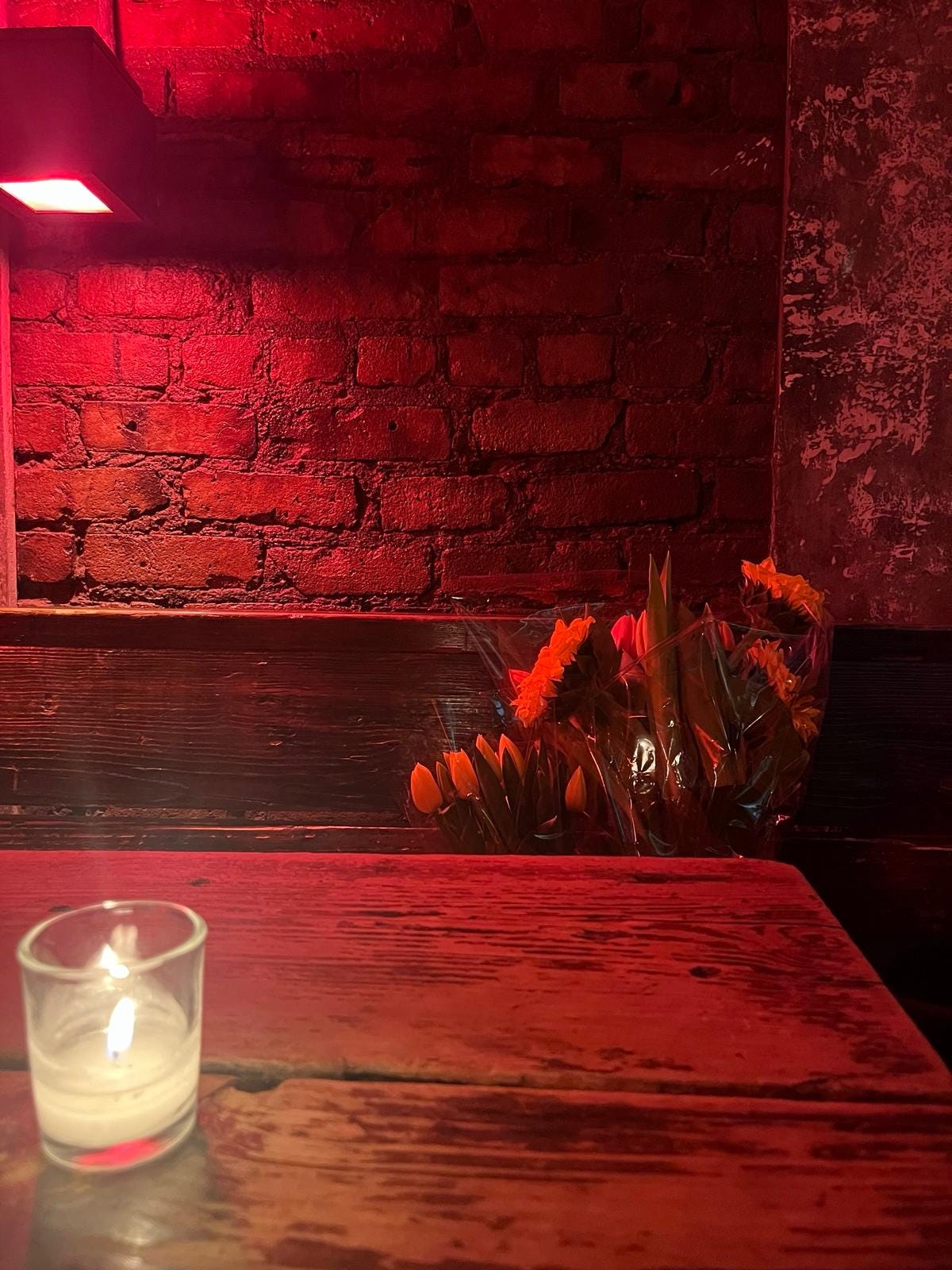Burning (translation as praxis)
Shlagha Borah's poem translated into Urdu + some thoughts on the project
Karachi, 11:36pm—
Growing up, my father used to take us to the Gulshan Sunday book bazaar, just opposite Federal Urdu University. You could get cheap hardcovers of Urdu-language titles and paperbacks of the latest Elif Shafak or Khaled Hosseini for as cheap as Rs 50.
There, perhaps was my introduction to the Urdu translations of Dostoevsky, Austen, and Dickens, to name a few. jurm aur saza, takabbur aur taa’sub. Many many more.
As I grew up, I heard of and saw these translations less and less. Even fewer of books that are not classics. Or not written in the 19th century.
During my time in New York City, I was once again interested in translations. Reading poems in translation. Happy that I had access to Akhmatova, Celan, Tagore, etc. etc. I also began translating Urdu-language poets into English, necessarily for an Anglophone audience.
And one day, in a public library in Iowa City, I thought about my father, and through him, about the Sunday book bazar. Those maximalist book covers with Urdu titles. Is the literariness of a language, of a people proportionate to the works being translated into that language, accessible to those people who speak it? I think yes.
I thought of the politics of language, and of translation. Clearly it could also be a two-way street. I can’t always be translating my third-world language into English. Surely, English could pay back. And to my wonder, it was easier than I’d imagined. Nobody said I couldn’t do it. Why hadn’t I thought to all this while?
Perhaps, that is what decolonizing translation really is? Insisting on a literariness in a language that is not English, or of the West. I’d also be remiss to not insist that it is, more than anything else, really fun.
Above all, I believe in reciprocity—as much as one is able.
I was reading Eileen Myles at that time. Their very short vertical poems were great exercises in translation. Those I will share at some other point.
Today, I want to share my translation of a dear friend’s poem that she wrote for someone who is very dear to her. And while I have not been very consistent with this newsletter, it is, after all, addressed to the dear friend. A two-way street.
Below is Shlagha Borah’s poem, Burning, originally published in The Sonora Review:
Burning For Mamoni Raisom Goswami When they lifted you up to the pyre, you were all red. Lips painted, eyebrows seething, skin wrapped in the crimson of your mother’s mekhela sador. Your face crinkled from the years. Decades and decades of devotion. Red on your cheeks. Your feet, red with alta dye. Footprints on the damp earth. Tallness of Kohuwa Bon. Paleness in the air. When we finally made it to the end of the line, my mother looked at your corpse and sighed. Nikhut, she said. Flawless. The men behind us said you didn’t understand fear. That’s what made you undesirable. The reporters said all you left behind was a casket of toenails. And incense – champa flowers & sandalwood. The fire burns through the thickness of your hair. Rattling of teeth. Your book in my hands, a goddess, a slaughtered bull. Blood, then nectar.
Below is my Urdu translation:
چتا جب انہوں نے تمہیں چتا پر رکھنے کے لئے اٹھایا، تم بالکل لال تھی۔ لبوں پہ لالی، بھنویں میچیں ، کھال اپنی ماں کی میکھیلا سادر کے لال میں لپٹی ہوئی ۔ تمہارا چہرہ سالوں کی گرد سے سکڑا ہوا ۔ عقیدت کے کئی برس۔ لالی تمہارے گالوں پر۔ تمہارے پیر ، لال مہندی سے سجے ہوئے۔ ان کے قدموں کے نشان اس گیلی زمین پر۔ کوہوا بون کی لمبائی ۔ ہوا کا پیلا پن ۔ آخر کار، جب ہم قطار کے شروع میں پہنچے ، تو میری ماں نے تمہاری لاش کو دیکھ کر آہ بھری۔ نِگہت، انہوں نے تمہارا نام پکارا۔ بے عیب ۔ ہمارے پیچھے کھڑے مردوں نے کہا کہ تمہاری بے خوفی تمہیں ناپسندیدہ بناتی تھی۔ رپورٹرز بولے کہ تم نے صرف پیر کے ناخنوں کا ایک تابوت چھوڑا ہے۔ اور ایک چمپا اور صندل کی خوشبو کی اگربتّی۔ آگ تمہارے گھنے بالوں کے درمیان جل رہی ہے۔ دانتوں کی ہلچل۔ تمہاری کتاب میرے ہاتھ میں ایک دیوی، ایک شہید بیل۔ خون، پھر امرت ۔
Some notes on the translation:
Instead of translating “Burning” literally as “jalta hua,” “jalna,” or any such variation of it, I picked—instead—the Urdu word for “pyre” being referenced in the first line itself. I think it sets the mood/tone of the poem well.
Shlagha and I went back and forth on the “The men behind us said you didn’t understand fear.” line. Initially, I’d translated it into Urdu as “you never felt fear.” However, Shlagha wanted fear itself to be the subject. So, I merged the two sentences about “fear” and “undesirability” into one in Urdu: your fear made you / undesirable.
There are a couple of images and words true to Assam/ese here. Mekhela Sador. Kohuwa Bon. I’ve kept them as they are in the translation. The only liberty I have taken here is with alta dye. I have translated it into mehndi/henna.
I have translated “slaughtered” as “martyr”—thinking of the tradition of slaughtering an animal. (All animals go to heaven.)
I want to thank Shlagha Borah for writing, and allowing me to share, this poem.
Thank you for reading. Hope to bring more like these to you in the coming weeks, months, years, etc.
Until next time,
Javeria





